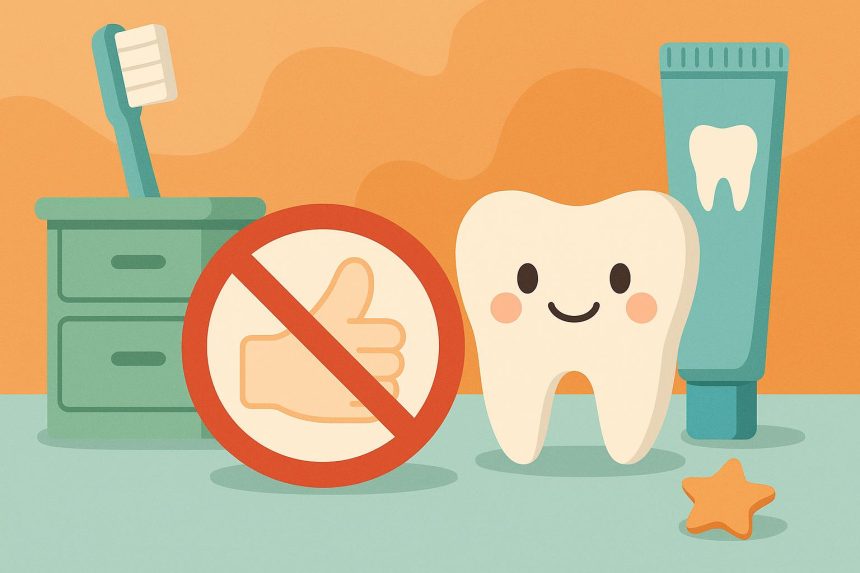Thumb sucking is a natural comfort habit for many children. It can help them feel secure during stressful moments or fall asleep faster. While it is normal in infants and toddlers, the habit can become a problem when it continues beyond early childhood.
Long-term thumb sucking can affect the way teeth grow and how the jaws develop. Parents sometimes struggle to help their kids stop on their own. This is where a kids dentist can play a key role. With the right support and guidance, children can let go of thumb sucking in a healthy and positive way.
Why Thumb Sucking Becomes a Concern
Thumb sucking may seem harmless during the first few years of life. Babies use it as a natural reflex to soothe themselves. However, when the habit continues beyond the age of four or five, dental issues can start to appear. Teeth may shift out of place, which causes problems with bite alignment. Prolonged sucking affects the roof of the mouth and changes the way jaws develop. In some cases, speech difficulties may follow.
How Pediatric Dentists Help Break the Habit
Pediatric dentists receive training to address thumb sucking in a gentle and child-friendly way. They first explain how the habit affects teeth in terms that children can understand. This helps kids see the importance of stopping the habit themselves rather than feeling forced. Dentists also create a safe and supportive environment that encourages cooperation. They may suggest small rewards and positive reinforcement strategies that motivate kids. For some children, simple reminders and encouragement are enough to stop the habit. In cases where the thumb sucking is stronger, the dentist may recommend special dental appliances that prevent the thumb from settling properly in the mouth.
Role of Parents in the Process
Parents play a big role in helping their child move away from thumb sucking. A pediatric dentist can give parents practical advice tailored to the child’s needs. Instead of scolding, parents are encouraged to use praise when their child avoids sucking. Keeping track of progress and celebrating small victories helps maintain motivation. Parents can also provide comfort and security through other methods, like reading together or offering a favorite toy. A calm environment during stressful moments reduces the urge to self-soothe through thumb sucking.
Benefits of Breaking the Habit Early
Ending the thumb sucking habit early brings long-term health benefits. It reduces the chances of teeth growing out of alignment, which can save families from costly orthodontic care later. Kids who stop earlier are less likely to develop speech issues connected to tongue placement. Their confidence improves as they no longer feel embarrassed about the habit in front of friends or classmates. Proper jaw growth receives support, which leads to a healthier bite.
Creating a Positive Dental Experience
One reason many children succeed with a pediatric dentist’s help is the positive environment created in the dental office. Pediatric dentists receive training to make visits fun and comfortable. They use child-friendly language and tools that make kids feel at ease. A relaxed setting helps children listen and cooperate more easily. This atmosphere allows dentists to talk about thumb sucking in a way that does not feel overwhelming. Many offices also provide rewards or playful distractions that make the visit enjoyable.
Thumb sucking starts as a source of comfort, but can lead to long-term problems if it continues too long. With the help of a kids dentist, children receive gentle guidance and encouragement to let go of thumb sucking. The combined effort of dentists and parents helps children succeed without added stress. With patience and teamwork, children can grow out of thumb sucking and move toward a healthier smile.
Lynn Martelli is an editor at Readability. She received her MFA in Creative Writing from Antioch University and has worked as an editor for over 10 years. Lynn has edited a wide variety of books, including fiction, non-fiction, memoirs, and more. In her free time, Lynn enjoys reading, writing, and spending time with her family and friends.















